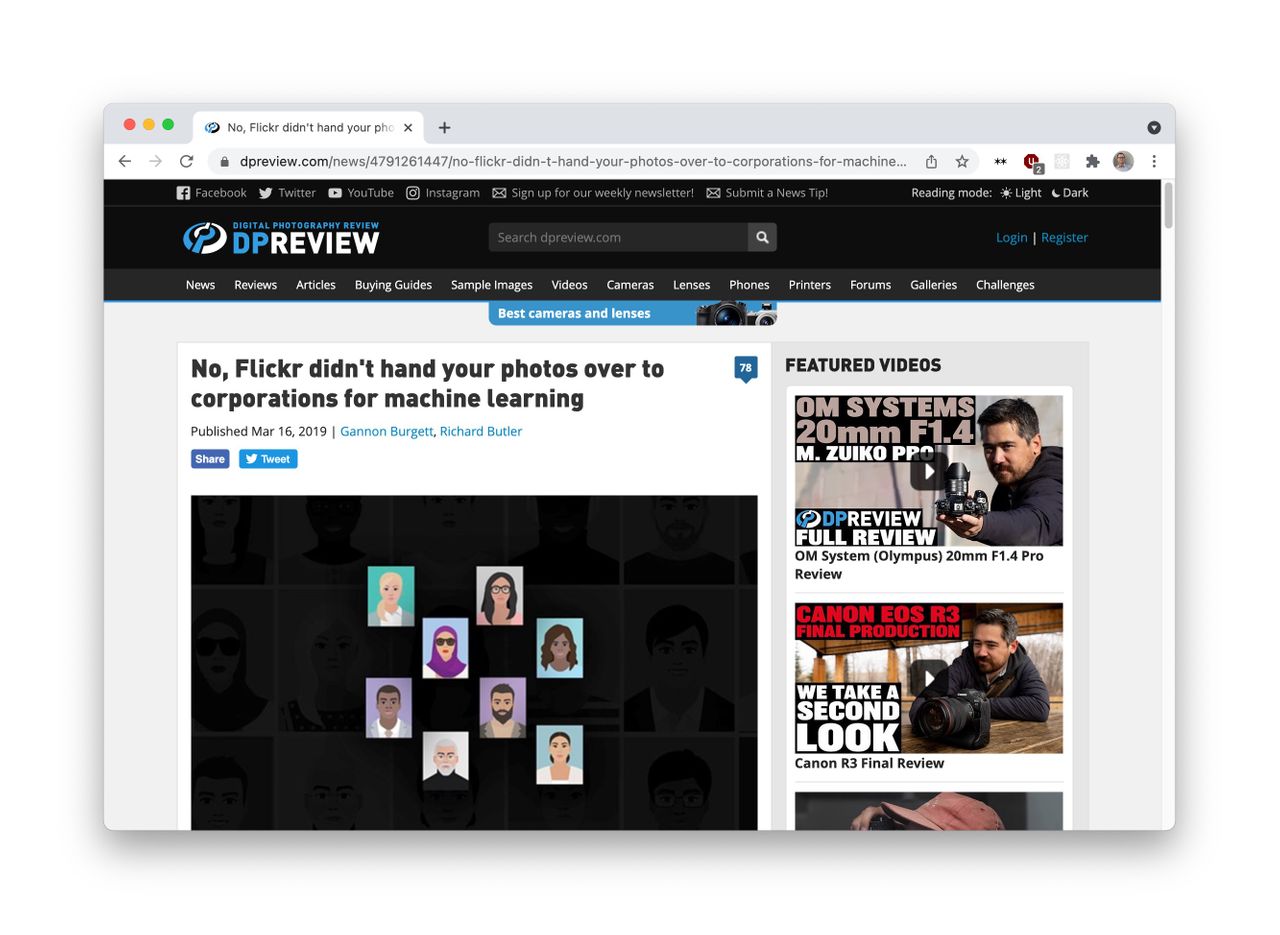Sharing in the presence of computers and corporations

In high school and college, I was a big fan of the Creative Commons. I even had a shirt with the copyleft logo on it.
The idea of freely sharing creative works, to be recombined by a community, was exhilarating: I would contribute raw materials to the collective - photographs, code, writing - and recombine the works of others, in Photoshop competitions or remixes. Practically every photo I’d license as CC-BY-SA. If someone used one of my photos in their blog, I felt a little jolt of approval and recognition. It felt cool.
The same went for open source. The early communities around Drupal and Node.js were radically open source. Companies were releasing their entire products for free and writing detailed blog posts about how they figured out hard problems. Whatever trade secrets they had were narrow: the value of the company was in its people and ability to move fast, not in its exclusive rights to code. And people actually, really did believe in leaving the world better than they found it.

Things changed gradually, but this is one of the milestones that I remember: when IBM mined Creative Commons-licensed photos for machine learning. The initial news reports said Flickr “handed over” the photos, then the correction was that they didn’t have to, because the license permitted the usage. What IBM did wasn’t nefarious, it was perfectly within the letter of the law. Was it in the spirit of the law? In one sense, it was IBM creating a product with unpaid labor. But also, their intent was to make more equitable algorithms. It’s a mixed bag.
But anyway, things got worse. A culture emerged from re-uploading Creative Commons videos on YouTube and profiting from the ads. I stopped licensing anything as Creative Commons, because it would inevitably be used on some content farm or sold in some fashion. My art would end up on a print-to-order site like RedBubble on a mug somewhere. My writing would be copied for SEO spam. It was easier to picture nefarious uses than creative ones.
On the code side, those companies that were brave enough to keep their products open source had their products whitelabeled by mega-cloud vendors, which pushed the open source companies to make their products less open. I saw this first-hand at a company that built foundational open source technology and decided to do the same.
I’ve been thinking about this because I’m building a new way to create and edit maps on the internet, writing down my thoughts as I go, and publishing some pieces of it as open source.
Placemark, the application, won’t be open source. I didn’t even consider the possibility: open sourcing the application layer of a product just doesn’t work. You get all the downsides of community support, white-labeling, process friction, confusion around why people have to pay, confusion around whether to use the open source version or the paid version, and none of the benefits.
But how much of Placemark should be open source? And how much should I share? While Placemark has plenty of bugs and problems, there are a few elements which are really good, and they’re good because I’ve invested time, energy, and now money into learning and progressing through failure. Is it good to just spill every secret, when someone might just quietly implement it in a purely-proprietary system?
What’s changed is that more of the internet is for-profit. There are more entities, like YouTube profiteers or machine-learning startups, eager to copy and ingest anything that’s legally unencumbered. That fewer startups are interested in contributing to open source in any significant way. Fewer still will open source major components of their product. And major companies with lots of existing contracts have started building their fortunes on open source in a way that feels - to me, on an emotional level - exploitative. Startups shouldn’t be their unpaid R&D department.
I can’t claim that what’s happening is good or bad, objectively. Whether the utopian vision was silly, or the mega-corps are evil, or the open source community is defaulting on its values. And it’s impossible to factor out my aging, the increasing jadedness that you feel having seen some history.
But the community feels different now, now that many of its participants have different values. When you share something for free, the first thing that happens is that someone else will sell it.